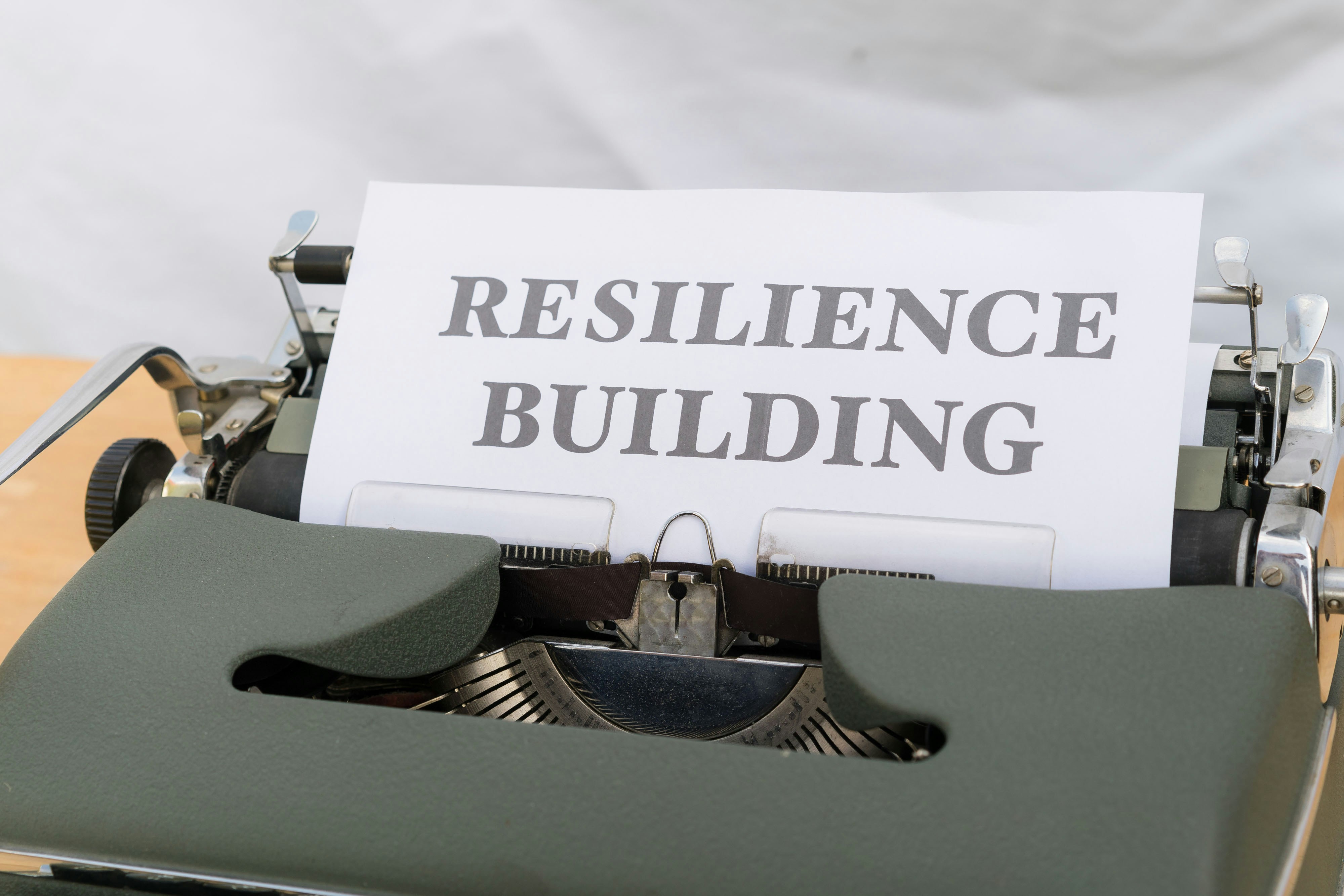Invest in Your Mental Wealth: Budget for Mindfulness in 2025
As we navigate the complexities of modern life, the importance of mental well-being has never been more apparent. In 2025, the concept of "mental wealth"—the well-being of our minds and emotional states—has gained traction as a crucial component of overall financial health. In this article, we'll explore how you can budget wisely for mindfulness and mental health resources, ensuring your investment in your mental wealth is as sound as your financial portfolio.
Understanding Mental Wealth: More Than Just a Trend
Mental health and mindfulness are no longer niche topics confined to wellness circles; they have entered the mainstream conversation around personal finance and investment. According to recent studies, investing in mental health resources can lead to an increase in productivity, improved workplace dynamics, and better decision-making skills.
In recent years, we’ve seen a shift from traditional investing solely in tangible assets like real estate or stocks to incorporating a more holistic approach that values emotional and psychological richness. This shift illuminates how a balanced mind contributes to financial prudence and lifelong success, aligning well with the ethos behind investing in lifelong education and skills in 2025—whether that means delving into new technologies or emotional intelligence.
For those curious about how mental investments relate to social dynamics, you might want to check out our blog on the emotional economy and its direct link to financial choices.
Budgeting for Mental Health: Where to Start

Identify Your Mental Health Goals

Before you can effectively budget for mental health resources, you need to clarify your personal goals. Ask yourself what aspects of your mental well-being you wish to improve. Are you seeking better stress management techniques, mindfulness practices, or perhaps counseling services?
By defining your priorities, you set a targeted direction for how your funds can best serve your mental wealth.
Allocating Your Budget

Much like traditional investments, budgeting for mental wealth requires insight into what you value. Allocate a percentage of your monthly income, similar to your savings or investment goals. Experts suggest aiming for around 5-10% of your monthly budget to be dedicated to mental health.
This budget could cover various resources such as:
-
Mindfulness Classes: Many community centers now offer meditation and yoga classes aimed at enhancing mental tranquility. Investing in a monthly membership might be beneficial.
-
Therapeutic Sessions: One-on-one consultations with licensed therapists can vary widely in price. Research your local options and find one that aligns with your financial capability.
-
Self-Help Resources: Books, apps, and online courses related to mental health can significantly boost self-awareness and emotional intelligence.
Integrating these categories can ensure that you’re not just checking boxes but empowering yourself with valuable tools.
Utilizing Technology for Mental Wealth

As we dive deeper into budgeting, technology is a massive ally in optimizing your mental wealth strategy.
-
Mindfulness Apps: Apps like Headspace or Calm not only make mindfulness more accessible, but they often have free or low-cost subscriptions, which allows for constant engagement with mental wellness habits.
-
Online Portals for Counseling: Services like BetterHelp make therapy accessible, allowing you to meet with a professional from the comfort of your home.
These technological advancements minimize barriers to accessing the necessary resources, contributing favorably to your overall mental wealth strategy.
The Interplay of Financial Literacy and Mental Health

Understanding Emotional Spending

The psychological aspects of spending often intertwine with our emotional states. Recognizing how our feelings influence our financial decisions is crucial. For instance, impulsive buying habits may sometimes serve as coping mechanisms for underlying issues. Understanding these dynamics is akin to achieving financial literacy that goes beyond numbers; it’s about understanding the "why" behind your spending habits.
You might want to explore how emotional intelligence plays a role in your investments by checking out the psychology of money. There, you’ll find that emotions are not just side effects of financial choices; they're central to them.
The Benefits of Mindful Spending

Integrating mindfulness into your spending can reframe your approach to finances. You can cultivate awareness around spending behaviors by practicing gratitude, which can, in turn, lead to better financial decisions. Consider using a journal to document feelings associated with spending; reflecting regularly could sharpen your insight and improve control over impulsive decisions.
Mindfulness practices like colorations toward emotional spending can yield a profound understanding of what drives certain expenditures. This can align with our earlier discussion about emotional spending patterns.
Investing in Personal Development

As we look ahead, personal development is a significant opportunity in investing in mental wealth. Dive into activities that foster emotional growth, like art or music classes. Investing in skills integral to personal growth adds layers to your mental wealth, much like investing in tangible assets enhances financial portfolios.
For further exploration into diverse growth avenues, you may want to read about gamification in financial strategies. Not only does it add an engaging layer to managing finances, but it also elevates your commitment to financial literacy and discipline through enjoyable formats.
Exploring Intangible Assets

In 2025, there’s a growing recognition that emotional and psychological tools can also be considered intangible assets. Educational programs focusing on mind resilience or stress management contribute significantly to mental well-being and, consequently, your financial health.
Investing in these programs not only enhances individual wellbeing but transforms interactions within social and professional spheres. Interpersonal relationships, emotional skills, and awareness become your net worth, creating spiritual and financial dividends that multiply over time.
Investing in these abstract facets of life can create a more profound sense of satisfaction and fulfillment, which ultimately resonates with better investments in tangible assets down the road.
Creating a Sustainable Mindfulness Practice

With every financial strategy comes the necessity of sustainability, including mental practices. Ensure that your mindfulness tactics are flexible enough to adapt to your evolving life circumstances. This way, you're not just ticking off items on a checklist but genuinely incorporating these elements into your everyday life.
Building habits often involves taking real actionable steps. Setting aside dedicated time in your calendar can contribute to creating that sustainable flow.
Reassessing Periodically

Check in periodically to reflect on what’s working in your mental wealth investment plan and what isn’t. This practice mirrors how savvy investors regularly review their portfolios to adjust to changing circumstances, always striving for optimization.
Peer Support Systems
Few investments are as rewarding as building supportive communities around you. Establishing networks such as community groups can enhance your mental health support. Studies have even shown that social support can significantly buffer stress effects.
Explore the nuances of interpersonal relationships and their impact on financial and emotional health through our piece on the currency of relationships, which showcases the inherent value in nurturing connections.
Resources for Investing in Mental Wealth
Books
-
"The Body Keeps the Score" by Bessel van der Kolk explores the connection between trauma, mental health, and physical well-being.
-
"Mindset: The New Psychology of Success" by Carol S. Dweck looks at the significance of cultivating a growth mindset—essentially focusing on your mental wealth.
Online Portals
-
Mindful Schools: Offers courses on mindfulness for both adults and children.
-
Coursera: Hosts a plethora of courses on emotional intelligence and mental well-being.
Incorporating these resources into your mental wealth investment strategy can yield dividends not just in financial terms but also in personal fulfillment and satisfaction.
Final Thoughts
Investing in your mental wealth is as crucial as focusing on traditional financial portfolios. By deliberately budgeting for mental health resources in 2025, you pave the way for a more balanced and enriched life. From recognizing your goals and allocating funds wisely to nurturing your emotional intelligence through support systems, every choice you make can lead to profound impacts on your health and finances.
In a world that often prioritizes tangible wealth, understanding that true abundance starts from within is an investment worthy of your time, attention, and resources. The journey toward mental wealth isn't just about eliminating stress; it’s about cultivating joy, resilience, and satisfaction.
Let's transform the narrative around investing and mental health together, ensuring the growth of both comes hand in hand.




